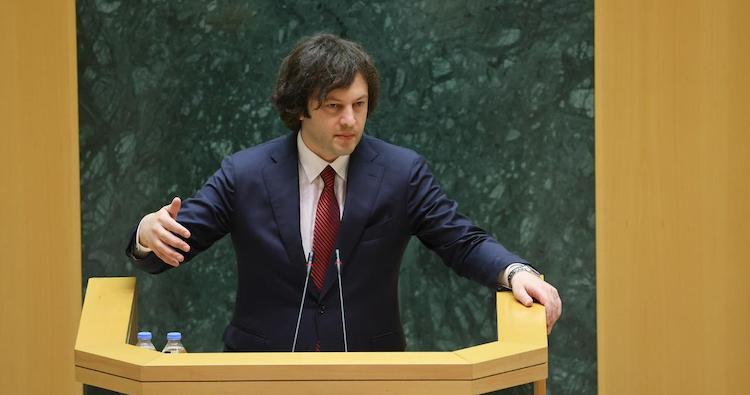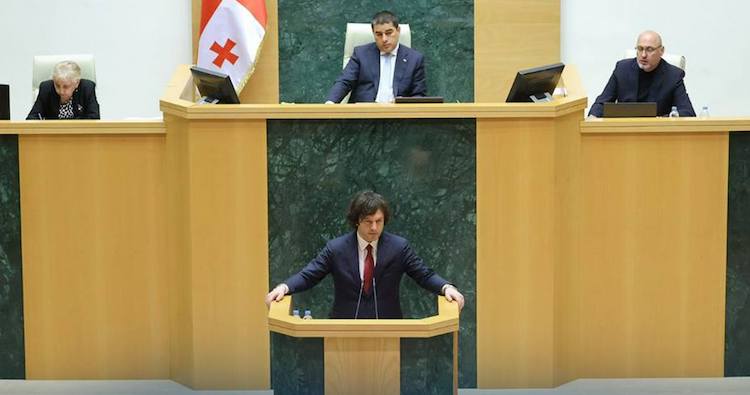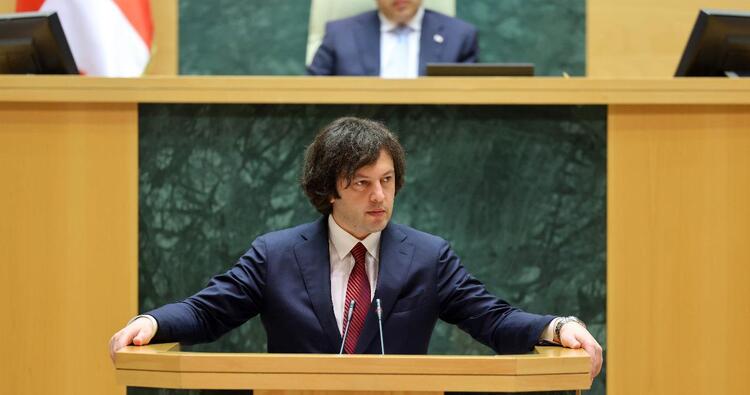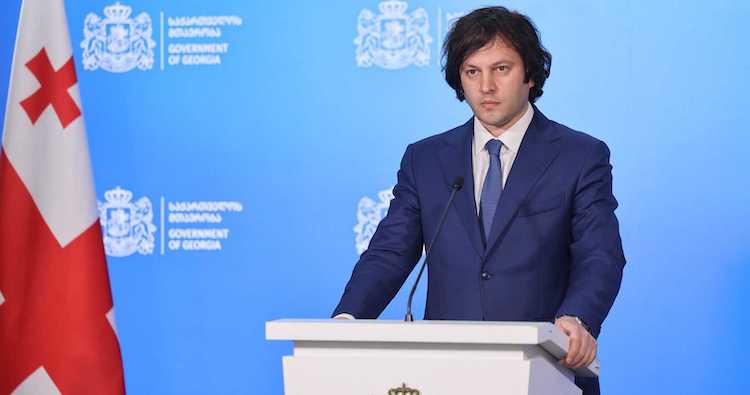Georgian PM says “dark money”, “undisclosed funds” “should not fuel unrest and hinder economic growth” in country
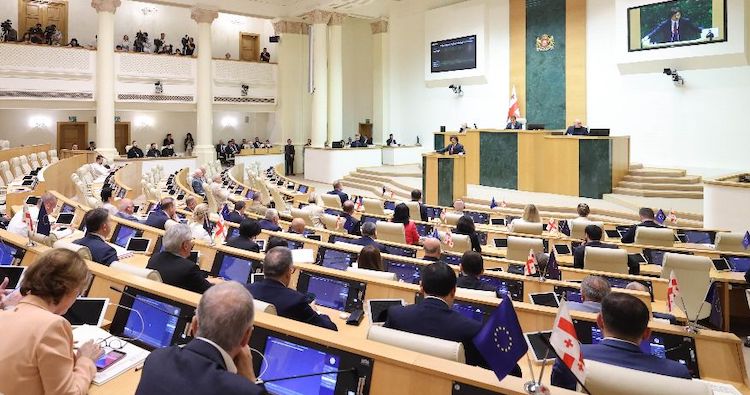
Georgian Prime Minister Irakli Kobakhidze on Friday told the Parliament “dark money” and “undisclosed funds” were being used to “fuel unrest and hinder economic growth” in the country while presenting his annual report to the body. Photo: Gov't Administration
Georgian Prime Minister Irakli Kobakhidze on Friday told the Parliament “dark money” and “undisclosed funds” were being used to “fuel unrest and hinder economic growth” in the country while presenting his annual report to the body.
Kobakhidze claimed the country’s economy, which currently stands at $30 billion, could have grown to “$35 billion or even $40 billion” if not for “processes the country has gone through over the past 12 years”.
He said “artificial political processes” were “acting as barriers to economic development” and lamented the alleged potential $5 billion loss caused by running the country “under such crises”.
The PM emphasised the importance of a recently adopted law on transparency of foreign influence, which requires registration of non-commercial legal entities and media outlets in the country as “pursuing the interests of a foreign power” if they derive more than 20 percent of their funding from abroad.
One of the main reasons why it was important to adopt the law is because we want to prevent any artificial barriers to the country’s development, including its economic growth. We cannot allow the use of dark money or hidden funds to support activities that disrupt the country’s progress and hinder its economic development”, Kobakhidze said.
Furthermore, the Prime Minister cited instances where economic projects of “strategic, economic and social importance” - such as the Kvesheti-Kobi road project of the North-South Corridor and the Namakhvani hydropower plant in the country’s west - had been “hindered by organisations for political reasons”.
He expressed optimism the law would “address these challenges and reduce the barriers” to the country’s economic development.
 Tweet
Tweet  Share
Share
